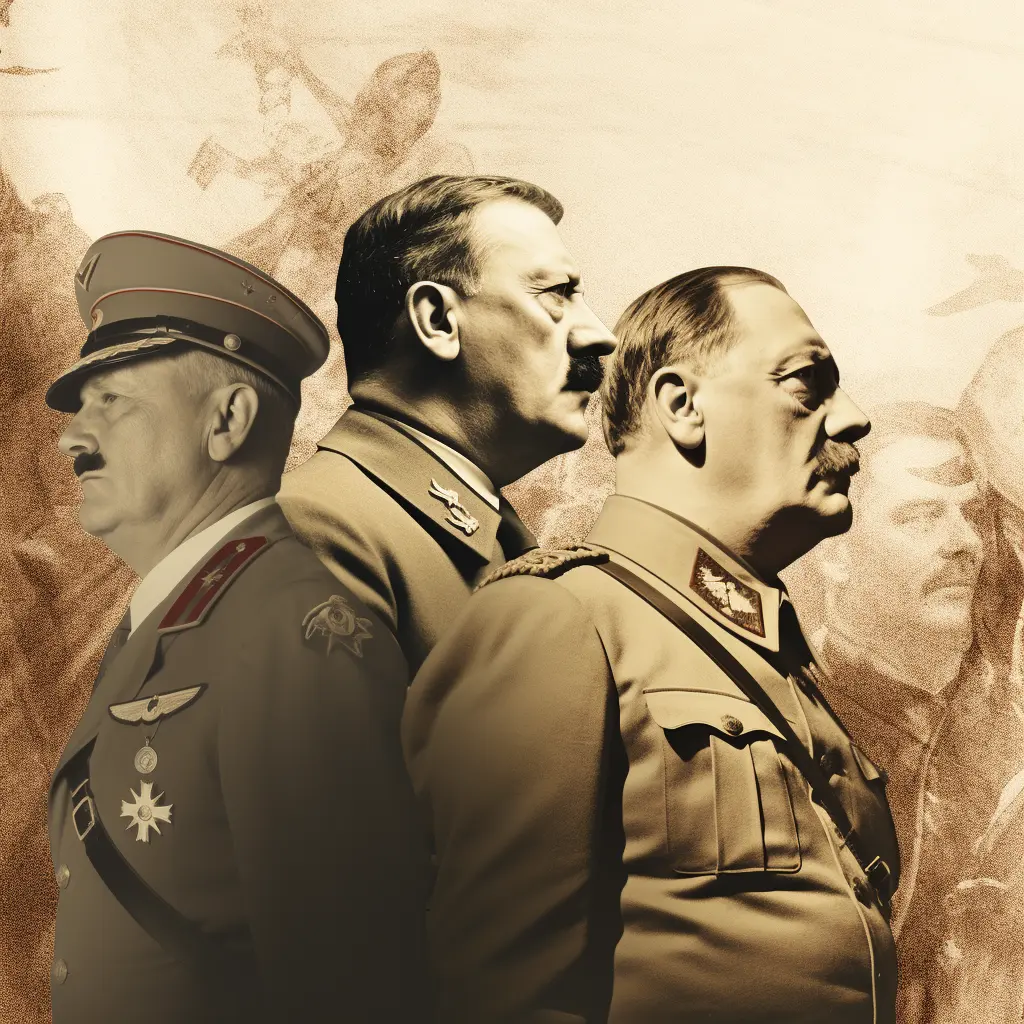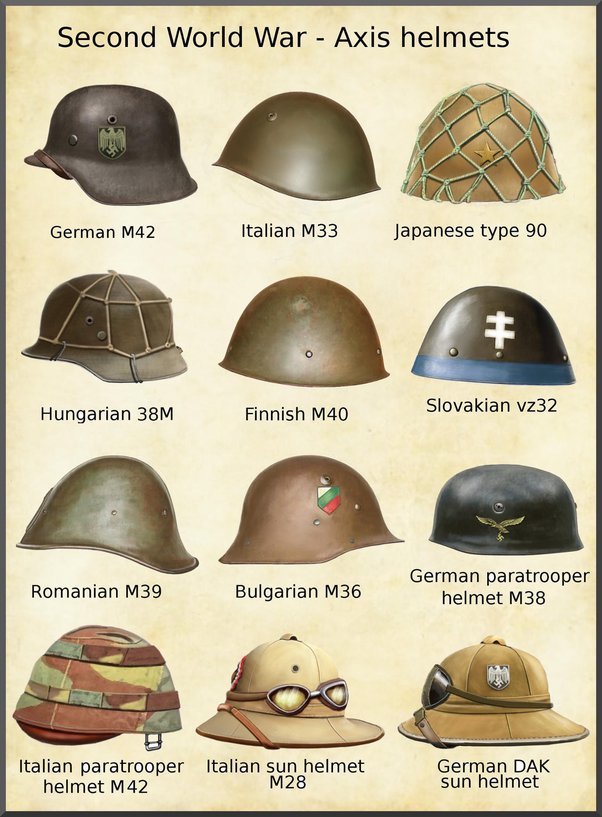
Introduction
Adolf Hitler is a name that conjures up many powerful images and connotations, stemming from his infamous role as the dictator of Nazi Germany and the instigator of World War II. Much has been discussed about his political tactics, his ideology, and the indelible marks he left on history. However, one aspect of his profile that is often overlooked is his linguistic repertoire. It’s commonly known that Hitler’s command of the German language was pivotal in his rise to power—his speeches swayed masses, and his writings spread his dogmatic policies. But beyond the rhetoric in his mother tongue, what other languages did Hitler speak, if any? Understanding the linguistic abilities of historical figures can offer insight into their psyche, diplomacy, and governance.
In this exploration, we venture beyond the surface to interrogate historical records, debunk prevalent myths, and uncover truths about the languages that Hitler spoke. Did he, as some suggest, converse fluently in English or French? Were there other languages in which he could communicate effectively? By dissecting the linguistic aspect of Hitler’s life, we can gain a more nuanced picture of the man whose words, in one language or another, shaped a dark epoch in human history. Join us as we dissect Adolf Hitler’s linguistic capabilities, separating fact from fiction, and revealing the languages that were part of his complex and notorious legacy.
Hitler’s Native Language
The Role of German in Hitler’s Life and Politics
Adolf Hitler’s rise to infamy is largely attributed to his vehement use of the German language. Born in Austria, he grew up in a German-speaking environment which laid the linguistic foundation for his future. His speeches, characterized by vehement rhetoric and dramatic gesticulation, resonated with the disenchanted German populace during the interwar period. It was this command of the German language that enabled him to connect with the masses, encapsulate their fears and aspirations, and channel them toward his political agenda.
Hitler’s written works, particularly “Mein Kampf,” are a testament to his use of the German language to propagate his ideologies. Through his writings, he was able to craft and disseminate the narrative of the Nazi ideology, emphasizing a return to a mythical, pure Germanic past. His language was both a tool and a weapon; it galvanized a nation into following him but also sowed the seeds of hatred and division.
Moreover, the German language under Hitler became an instrument of power and control. It was meticulously shaped and utilized to communicate the Nazi party’s propaganda. Through the manipulation of German words and phrases, the regime could euphemize its brutal policies and intentions, making the unfathomable seem reasonable to the public.
His oratory in German was so central to his persona that it almost seemed as though Hitler’s power was vested in the very intonations of his speech. Film footage and radio broadcasts of the time exemplify how his fervor and pacing gripped listeners. His speeches were not just words; they were performances that mesmerized some and terrified others.
Yet, it was not merely the content of his communication but also the purity of the language that concerned Hitler. He and his regime sought to purge the German language of foreign influences, enhancing its Germanic roots. This linguistic purism became part of the larger racial purism that the Nazis notoriously pursued. It is through the lens of language that one can witness the intermingling of culture and extremism that characterized Hitler’s Germany.
In essence, the German language was at the very core of Hitler’s identity as a political figure. It was through this medium that his ideology was conveyed and ultimately, through which he solidified his control. Without his masterful, albeit malevolent, use of the German language, Adolf Hitler might not have left the indelible mark on history that, for better or for worse, he certainly did.
Hitler’s Encounter with Other Languages
Exposure and Proficiency Beyond German
Although German was the linguistic bedrock of Hitler’s life, his encounters with other languages throughout his lifetime paint a complex picture of his linguistic profile. From his time as a soldier in World War I to his interactions with international leaders during his dictatorship, Hitler had multiple opportunities to engage with languages other than his native German.
The most notable of these foreign languages was English. While there is some evidence to suggest Hitler had an understanding of English, his proficiency level has been the subject of much debate. Reports from his inner circle, like those from Albert Speer, his armaments minister, indicate that Hitler could comprehend English to a certain extent but rarely spoke it. During the 1930s and 1940s, English became the lingua franca of international diplomacy, yet Hitler preferred to rely on interpreters during meetings with English-speaking officials.
French, too, had a role in Hitler’s life, particularly as he dealt extensively with France both politically and militarily. However, there is scant evidence of him having any proficiency in French. While he would have had exposure to the language during his service in World War I and his subsequent political dealings, there are no records of Hitler communicating fluently in French. Instead, he viewed the language with a certain disdain, associated as it was with one of Germany’s main adversaries.
The possibility of Hitler speaking other languages such as Italian or Russian is even less substantiated. While Hitler maintained a close alliance with Mussolini’s Italy, there is no historical record to suggest he spoke Italian in any capacity. Similarly, despite the critical role the Eastern Front played in World War II, there is no indication that Hitler had any knowledge of Russian or other Slavic languages.
It is critical to note that Hitler’s lack of linguistic diversity did not hamper his political ambitions or diplomatic efforts. He was aware of the power of language as a tool for propaganda and control, and in many ways, his emphasis on the German language was a strategic choice to promote German nationalism. By not engaging in other languages publicly, Hitler maintained the persona of the archetypal German leader, unblemished by foreign influence.
The myth of Hitler as a polyglot seems to have been a part of the larger myth-making mechanism that surrounded his person. It served to create an image of a worldly and knowledgeable leader, which, in reality, was more propaganda than truth. The evidence suggests that while Hitler may have had some exposure to and understanding of other languages, he was far from proficient in them. His linguistic abilities beyond German were, at best, rudimentary and more symbolic than practical.
Hitler and the English Language
Analyzing Hitler’s Relationship with English
Adolf Hitler’s relationship with the English language is shrouded in ambiguities and speculation. While some anecdotal evidence suggests that he had a basic understanding of English, it is widely accepted that he never achieved fluency. His knowledge of English was likely passive; he could understand bits when spoken slowly, but there are no credible reports of him holding a conversation in English.
The extent of Hitler’s English was perhaps best exemplified in his interactions with English-speaking leaders and diplomats. During these exchanges, he invariably relied on translators. This reliance was not just a matter of language proficiency but also a strategic decision. By using interpreters, Hitler maintained a degree of control over conversations, gaining time to construct responses and allowing for an element of plausible deniability in discussions.
Moreover, his public stance towards the English-speaking nations was fraught with contradictions. Although he expressed admiration for the British Empire’s vast reach and governance, it was coupled with an aggressive desire to challenge and surpass it. His speeches often lambasted the English language as a symbol of perceived British decadence and hegemony. In this context, speaking English publicly would have undermined his own narrative of German superiority.
While Hitler may have possessed some comprehension of the English language, his proficiency was limited and primarily unused. His complex relationship with English reflects the broader dynamics of his political strategies and ideological convictions.
The French Connection
France in Hitler’s Linguistic Landscape
Adolf Hitler’s interactions with the French language were minimal and politically charged. During his reign, France stood as one of Germany’s historical rivals and eventual occupied territory. Hitler’s knowledge of French was, by all reliable accounts, extremely limited. There are no recorded instances of him speaking French in public or private settings, and during diplomatic meetings with French officials, he consistently used interpreters.
The occupation of France provided Hitler with a stage to display his dominance, but not through linguistic assimilation. He did not engage with the French language in a way that suggested any proficiency; rather, he treated it as a subject of derision—a language of a nation that had been subjugated by his own.
In Nazi ideology, language was a marker of race and identity, and the German language was considered superior to others. Hitler’s disdain for French extended beyond language, encompassing a broader contempt for French culture and history, which he believed were antithetical to his vision of German purity and supremacy.
Hitler’s approach to the French language can thus be seen as an extension of his political and military ambitions, reflecting the complex and often antagonistic relationship between Germany and France during the era. The language of Voltaire and Rousseau was not one he cared to embrace or understand—it was a trophy in his campaign against a longstanding adversary.
Other European Languages
Hitler’s Interaction with Italians, Russians, and Others
Aside from German, English, and French, other European languages played a role in the geopolitical landscape that Hitler navigated. However, his proficiency in Italian, Russian, or any other European language remains doubtful.
Italy’s alliance with Germany during World War II meant that Hitler frequently interacted with Italian Fascist leader Benito Mussolini. Despite their political partnership, there is no evidence to suggest that Hitler spoke Italian. Meetings between the two leaders were conducted with the aid of interpreters, suggesting at most a rudimentary understanding of Italian on Hitler’s part.
As for Russian, given the vastness of the Eastern Front and the significance of the Soviet Union in the war, it would seem plausible for Hitler to have some interest in the Russian language. Yet, historically, there is nothing to indicate that he invested any time in learning it. In fact, his ideological disdain for Slavic peoples likely precluded any such linguistic pursuits.
Other languages, such as those spoken in the countries Germany occupied or had treaties with, seem to have been of little personal interest to Hitler. The language of diplomacy and occupation was overwhelmingly German, emphasizing the linguistic hegemony he sought to establish across Europe. This approach mirrors the broader Nazi strategy of cultural domination, wherein the German language and culture were considered supreme, and others were either marginalized or outright suppressed.
Myth vs. Reality
Disentangling Truths About Hitler’s Linguistic Skills
The mythology surrounding Adolf Hitler’s linguistic prowess is rife with exaggerations and fabrications. Over the years, some have postulated that he was a polyglot, a claim lacking substantial evidence. Hitler’s command of languages other than German was, at best, elementary.
Contrary to the larger-than-life persona crafted by Nazi propaganda, Hitler’s actual language skills were quite modest. Historical records and witness accounts from his contemporaries consistently indicate that he spoke only German in any functional capacity. His interactions with foreign leaders and the diplomatic corps were always facilitated by interpreters.
This reality check helps to demystify the figure of Hitler, presenting him as a monolingual individual whose communication in other languages was more symbolic than substantive. The linguistic reality of Hitler stands in stark contrast to the image of a worldly and intellectually versatile leader that some narratives have attempted to portray.
The Impact of Language on Nazi Propaganda
The Strategic Use of German in the Third Reich
Language in Nazi Germany was not merely a means of communication; it was an ideological weapon. Hitler’s strategic use of German was integral to the regime’s propaganda, serving to unify the populace under a single banner and to marginalize those deemed outsiders or enemies.
The German language was meticulously curated within the Third Reich, with the Nazis coining new terms and phrases to suit their political ends. Words like “Volksgemeinschaft” (national community) and “Lebensraum” (living space) were imbued with particular ideological significance, becoming synonymous with the Nazi vision for Germany and its future. This manipulation of language created a lexicon that resonated with nationalistic fervor and racial ideology.
Nazi propaganda also exploited the purity of language. Hitler’s regime promoted the idea of a “reinforced” German language, cleansed of foreign influences, much like their efforts to create a racially pure German state. Language became another frontier in their battle against what they considered cultural and racial contamination.
In this climate, speaking German was not only a matter of national pride but also a signifier of loyalty to the Nazi cause. The regime’s control over language extended into education, media, literature, and all forms of public discourse. By controlling the language, the Nazis controlled the narrative, shaping public perception and silencing dissent.
This focus on the German language also had significant implications for occupied territories. German was often imposed as the official language, eroding local languages and cultures, as part of the broader goal of Germanization. In this way, the strategic use of the German language extended the reach of Nazi influence, consolidating their power both ideologically and territorially.
The emphasis on German under Hitler’s regime demonstrates the potent role language can play in shaping political landscapes. It was a tool for unity within and aggression without—a reflection of the ambitions and atrocities of the Nazi regime.
Conclusion
Reflecting on Hitler’s Linguistic Abilities
To address the titular question, “What languages did Hitler speak?”. The evidence points overwhelmingly to a singular truth: Adolf Hitler was predominantly, if not solely, a German speaker. While he may have had some exposure to English and possibly understood a limited amount of conversational language, he never demonstrated fluency or active use in any language other than German.
The myth of Hitler as a polyglot is just that—a myth. His legacy, however, is a testament to the power of language when wielded by a skilled orator and propagandist. Hitler’s use of the German language was central to his rise to power and the implementation of his brutal policies. Language was a cornerstone of the Nazi propaganda machine, a means of both uniting a populace and marginalizing entire groups of people.
In conclusion, Adolf Hitler’s linguistic repertoire was limited in diversity but profound in impact, illustrating the monumental role language plays in history and the influence of a single language in the hands of a powerful, albeit nefarious, leader.


